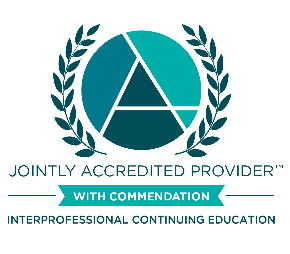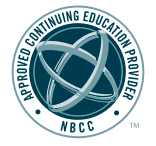A Resource for Healthcare and Social Services Professionals
August 3, 2023
12:00 pm–1:00 pm ET
This training will highlight the importance of family and social support for people with SUD. The importance of evidence-based resources for families will be explained, and concrete and simple changes to current models of addiction treatment to engage the family will be introduced.
Via Zoom
Family members (i.e., nuclear family, extended family, chosen family) of people with substance use disorder can positively impact addiction treatment initiation, engagement, retention, as well as sustained recovery. This training will reframe the role of family members in the lives of people with substance use disorder, highlighting the importance of family and social support in achieving optimal health outcomes. The experience of family members and their capacity to improve all addiction-related outcomes will be discussed. Additionally, this training will highlight gaps in current resources for family members and how education and information provided to family members can impact the treatment and recovery of their loved ones. The importance of providing evidence-based information to families will also be emphasized. Lastly, the training will introduce concrete and simple changes to current models of addiction treatment to engage the family and leverage the invaluable support they provide to people with substance use disorder.
All medical and non-medical staff seeking to learn about the role of the family in addiction treatment are encouraged to attend.
Alicia Ventura is the Director of Special Projects and Research for Boston Medical Center’s (BMC) Grayken Center for Addiction, Training, and Technical Assistance Program and BMC’s Office-Based Addiction Treatment (OBAT) Program. She is also a board member and membership secretary of the Addiction and the Family International Network. Alicia has over 15 years of experience conducting public health and clinical research. She has focused the last decade of her career exclusively on research, evaluation, and program development related to mitigating the harmful consequences of alcohol and drug use, including the impact on affected family members. Alicia developed a harm-reduction-focused educational program for family members affected by a loved one’s substance use, which she directs and co-facilitates out of Boston Medical Center. Alicia also currently provides training and technical assistance for healthcare organizations on improving the integration of the family into routine addiction treatment. She is currently the Principal Investigator of a qualitative study looking at the experience of affected family members and their interactions with the healthcare and addiction treatment systems; she is also a Co-Investigator on a mixed-methods study examining the attitudes toward and experiences of addiction treatment providers as related to interacting with family members. Alicia has lectured on the reciprocal relationship between affected family members and their loved ones with addiction for local, national, and international audiences. She has published on various topics, including reproductive health, HIV, alcohol, and drug use, and family members impacted by substance use. Alicia received her Master's in Community Public Health from New York University.
Upon completion of the training, participants will have the knowledge necessary to:
Boston Medical Center Grayken Center for Addiction TTA, Massachusetts Department of Public Health, Bureau of Substance Addiction Services (DPH/BSAS)
Funding for out of state attendees is provided by the Opioid Response Network (ORN).
Funding for this initiative was made possible (in part) by grant no. 1H79TI083343 from SAMHSA. The views expressed in written conference materials or publications and by speakers and moderators do not necessarily reflect the official policies of the Department of Health and Human Services; nor does mention of trade names, commercial practices, or organizations imply endorsement by the U.S. Government.
 In support of improving patient care, Boston University Chobanian & Avedisian School of Medicine is jointly accredited by the Accreditation Council for Continuing Medical Education (ACCME), the Accreditation Council for Pharmacy Education (ACPE), and the American Nurses Credentialing Center (ANCC), to provide continuing education for the healthcare team.
In support of improving patient care, Boston University Chobanian & Avedisian School of Medicine is jointly accredited by the Accreditation Council for Continuing Medical Education (ACCME), the Accreditation Council for Pharmacy Education (ACPE), and the American Nurses Credentialing Center (ANCC), to provide continuing education for the healthcare team.
Boston University Chobanian & Avedisian School of Medicine designates this live activity for a maximum of 1.00 AMA PRA Category 1 Credit(s)™. Physicians should claim only the credit commensurate with the extent of their participation in the activity.
Boston Medical Center grants 1.00 hours to all nurses who attend and complete the evaluation. Boston Medical Center is approved as a provider of nursing continuing professional development by American Nurses Association, Massachusetts, an accredited approver by the American Nurses Credentialing Center’s Commission on Accreditation.
As a Jointly Accredited Organization, Boston University Chobanian & Avedisian School of Medicine is approved to offer social work continuing education by the Association of Social Work Boards (ASWB) Approved Continuing Education (ACE) program. Organizations, not individual courses, are approved under this program. Regulatory boards are the final authority on courses accepted for continuing education credit. Social workers completing this course receive 1.00 general continuing education credits.
 BMC Grayken Center of Addiction TTA has been approved by NBCC as an Approved Continuing Education Provider, ACEP No. 7188. Programs that do not qualify for NBCC credit are clearly identified. BMC Grayken Center of Addiction TTA is solely responsible for all aspects of the programs. For this program, 1.00 contact hours will be offered to participants who attend the training and complete the evaluation.
BMC Grayken Center of Addiction TTA has been approved by NBCC as an Approved Continuing Education Provider, ACEP No. 7188. Programs that do not qualify for NBCC credit are clearly identified. BMC Grayken Center of Addiction TTA is solely responsible for all aspects of the programs. For this program, 1.00 contact hours will be offered to participants who attend the training and complete the evaluation.